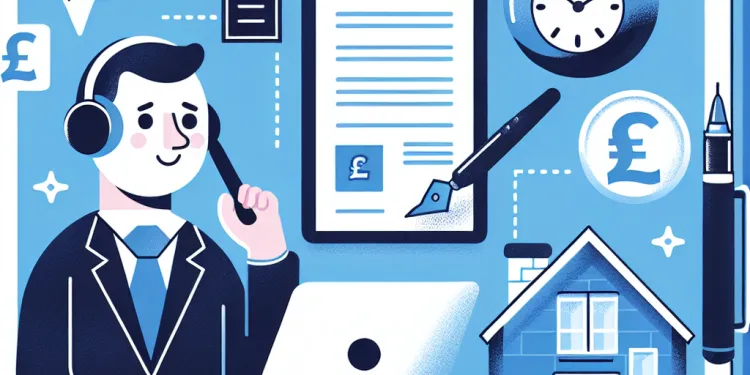
Find Help
More Items From Ergsy search
-
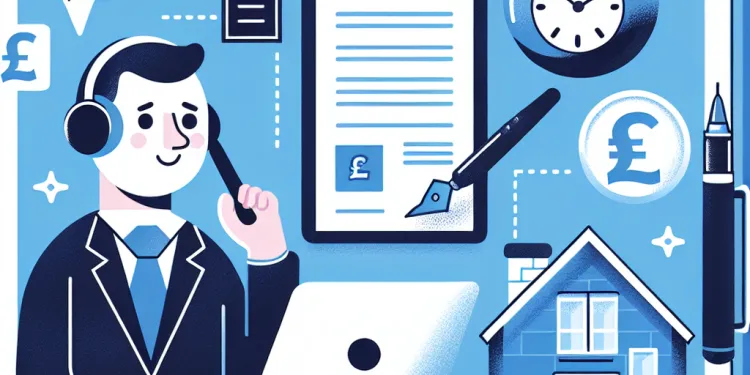
Can I negotiate with my landlord to avoid eviction?
Relevance: 100%
-
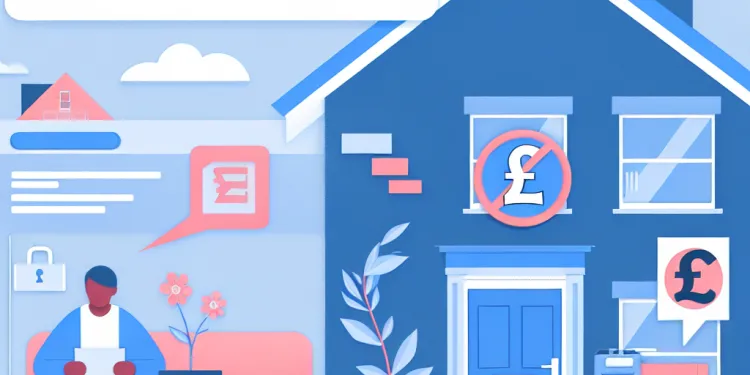
What can I do if my landlord wants to evict me?
Relevance: 70%
-

What should I do if I receive an eviction notice from my landlord?
Relevance: 60%
-

Can my landlord evict me without providing a reason?
Relevance: 58%
-
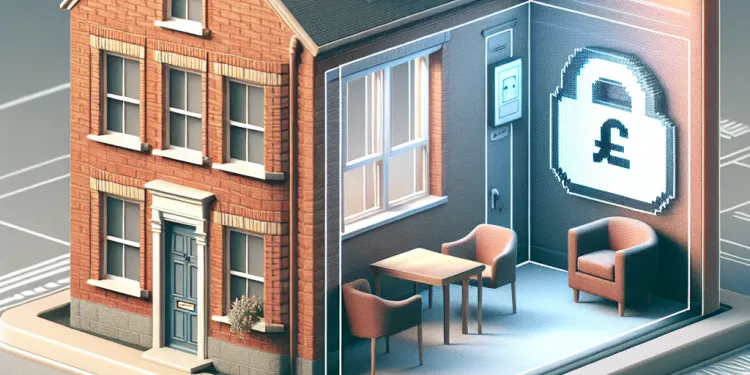
Can a landlord lock me out or remove my belongings to evict me?
Relevance: 57%
-
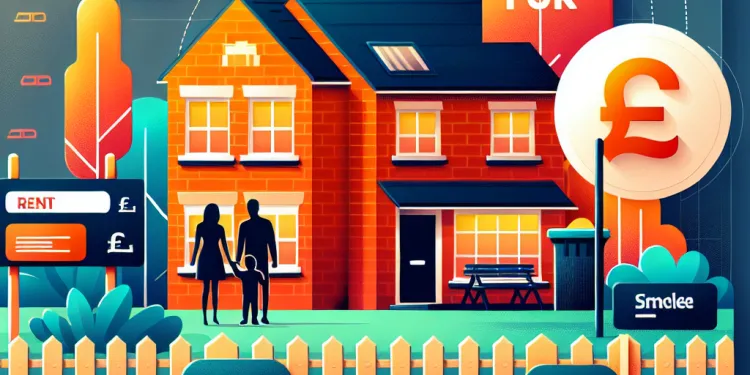
Can a landlord evict me for complaining about property conditions?
Relevance: 56%
-

How can I contest or challenge the eviction?
Relevance: 53%
-

Are there any government programs that can help me avoid eviction?
Relevance: 53%
-

Can eviction affect my credit score?
Relevance: 52%
-

Can I stop an eviction if I catch up on rent payments?
Relevance: 50%
-

What are my rights during the eviction process?
Relevance: 50%
-

What happens if I stay beyond the eviction deadline?
Relevance: 49%
-
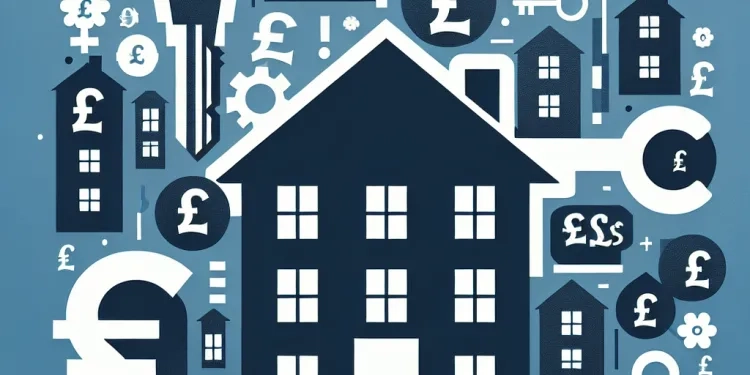
What are the consequences of having an eviction on my record?
Relevance: 48%
-
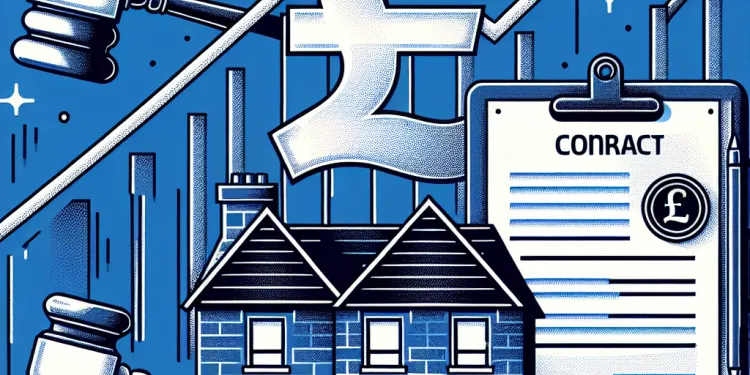
Are there changes to the eviction process?
Relevance: 47%
-
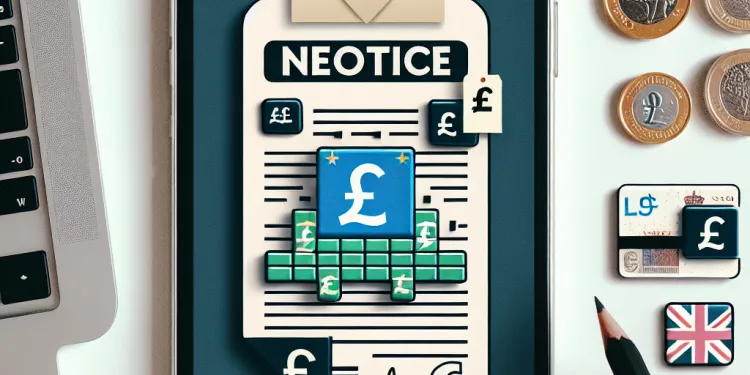
Has the notice period for eviction changed?
Relevance: 47%
-

How long do I have to move out after receiving an eviction notice?
Relevance: 47%
-
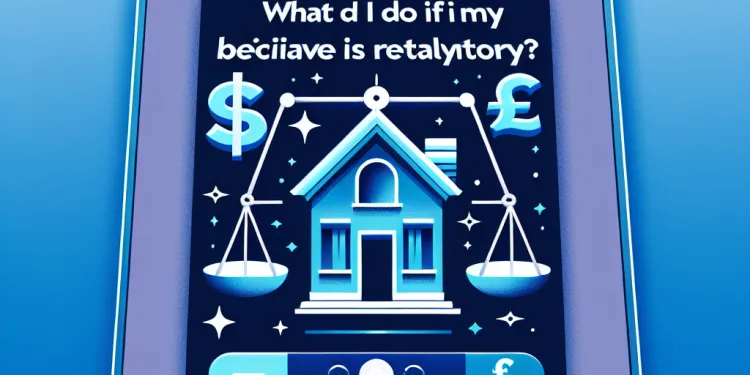
What can I do if I believe my eviction is retaliatory?
Relevance: 46%
-

Does filing for bankruptcy stop an eviction?
Relevance: 46%
-

How can I prepare for an eviction court hearing?
Relevance: 45%
-

Can I appeal a court's eviction decision?
Relevance: 43%
-

What should I do if I can't afford a lawyer for the eviction process?
Relevance: 42%
-
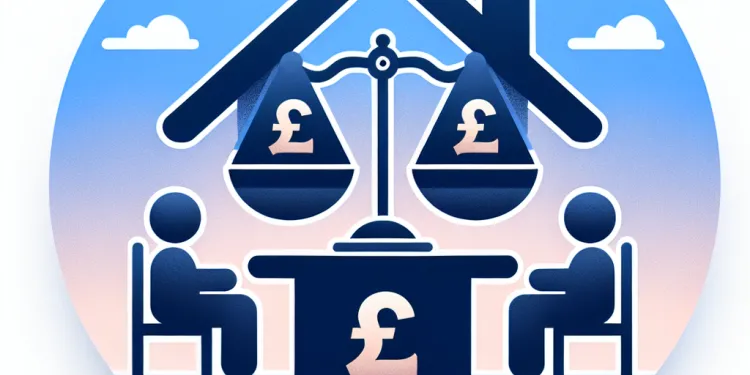
Is mediation an option to resolve eviction disputes?
Relevance: 41%
-
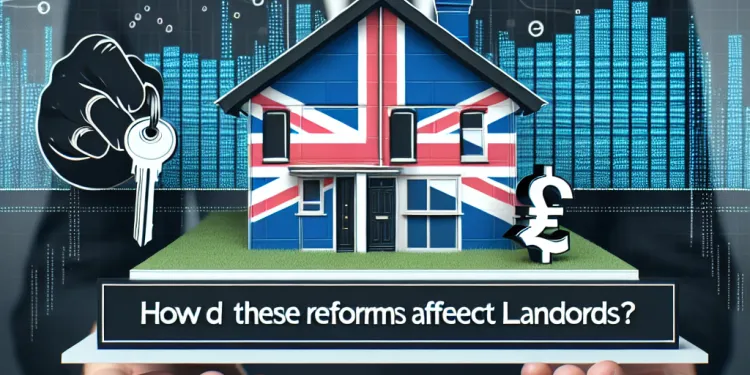
How do these reforms affect landlords?
Relevance: 40%
-

How are disputes between landlords and tenants handled?
Relevance: 37%
-

How do I find alternative housing quickly if evicted?
Relevance: 36%
-

Landlord Licensing Laws Under Review as Tenants Call for Stronger Protections
Relevance: 36%
-

Is it possible to negotiate a better price on a lease?
Relevance: 35%
-

How are landlord-tenant issues resolved in property litigation?
Relevance: 35%
-

Can property litigation be avoided?
Relevance: 34%
-

What can tenants do if they are affected by the cuts?
Relevance: 32%
-

Can I negotiate a resolution directly with the dealer?
Relevance: 32%
-

How will the cuts impact landlords?
Relevance: 31%
-
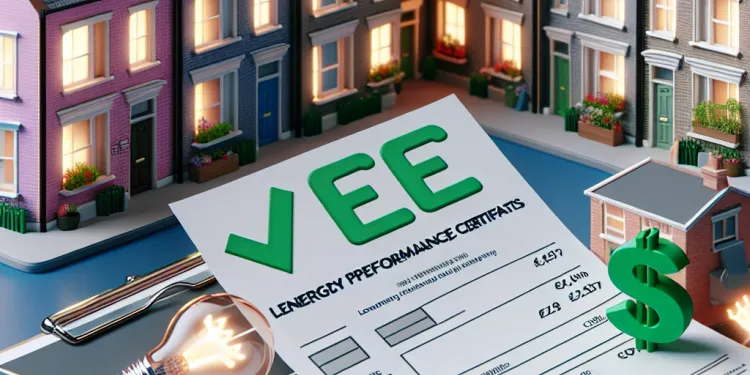
Are landlords required to provide energy performance certificates?
Relevance: 30%
-

What new protections are included for tenants?
Relevance: 28%
-

Can I negotiate rates with energy suppliers?
Relevance: 28%
-

Can I negotiate a settlement for my student loan?
Relevance: 28%
-

Can I get help negotiating bills with service providers?
Relevance: 27%
-

What are the new Tenancy Law Reforms in the UK in 2025?
Relevance: 27%
-

Can the cost of the surveyor's report be negotiated between the buyer and seller?
Relevance: 25%
-

5 Broker Exclusive Buy to Let Mortgage Lenders you need to know about as a Landlord
Relevance: 25%
Understanding Your Rights as a Tenant
As a tenant in the UK, you have certain rights and responsibilities. It's important to understand these when facing potential eviction. The UK law requires landlords to follow specific legal procedures before evicting a tenant. They must provide proper notice and have a legitimate reason for ending the tenancy. Grounds for eviction often include rent arrears, damage to the property, and breach of term agreements.
Steps to Take Before Negotiation
Before entering into negotiations with your landlord, gather all relevant documents related to your tenancy, such as the lease agreement, correspondence, and any evidence of payments. Review your tenancy agreement to understand your obligations and check if there are any specific clauses related to late payments or eviction. This preparation will give you a good grounding in your current standing and help you approach discussions with confidence.
Approaching the Negotiation
When you’re ready to negotiate, it’s essential to communicate openly and honestly with your landlord. Arrange a meeting or write a letter explaining your situation. If you're experiencing financial difficulties, provide details about your circumstances and suggest a feasible repayment plan. A proactive approach shows your willingness to resolve the issue and can encourage the landlord to reconsider the eviction process.
Offering a Repayment Plan
If rent arrears are the reason for the eviction, propose a realistic repayment plan to your landlord. Calculate how much you can afford to pay each month in addition to your ongoing rent. Being realistic about your financial situation ensures that the plan you propose is sustainable and more likely to be accepted by the landlord.
Seeking Legal and Professional Advice
If negotiations with your landlord are challenging, or if you feel unsure about your rights, seek advice. Organizations such as Citizens Advice and Shelter offer guidance and can support you in dealing with potential eviction. They can also mediate discussions between you and your landlord, helping to reach a resolution that works for both parties.
Documenting Agreements
Should your landlord agree to a revised payment schedule or continuation of your tenancy under certain conditions, ensure any agreement is documented in writing. A signed agreement protects both parties and reduces the risk of future disputes moving forward.
Follow-Up and Communication
Maintain open communication with your landlord after reaching an agreement. Provide regular updates about your financial status if needed and keep them informed about payments. Demonstrating responsibility and transparency can help rebuild trust and foster a positive ongoing relationship with your landlord.
Knowing Your Rights as a Tenant
If you are renting a home in the UK, you have certain rights and things you must do. It's good to know these if your landlord wants you to leave. The law in the UK says landlords must do certain things before they ask you to leave. They have to tell you with enough time and have a good reason. Reasons can be if you haven't paid rent, if you've damaged the home, or if you've broken the rules in your agreement.
What to Do Before Talking
Before you talk to your landlord, collect all your important papers. This includes your rental agreement, any letters, and receipts of your payments. Read your rental agreement to know what you need to do, especially about late payments or leaving the home. This will help you feel ready and confident to talk with your landlord.
How to Talk to Your Landlord
When you're ready to talk, be honest and clear with your landlord. You can set up a meeting or write a letter to explain your situation. If you're having money problems, tell them what is happening and offer a plan to pay back what you owe. Showing you want to solve the problem might help your landlord understand and work with you.
Making a Plan to Pay Back
If you owe rent, offer your landlord a plan to pay it back. Work out how much you can pay each month along with your usual rent. Make sure the amount is something you can really pay, so the landlord knows you mean it and might agree to it.
Getting Help and Advice
If talking to your landlord is hard or if you're unsure about your rights, get help from others. Groups like Citizens Advice and Shelter can give you advice and help with your problems. They can also talk to your landlord for you and try to make things better.
Writing Down Agreements
If your landlord agrees to new payment plans or lets you stay, write it down. Both you and the landlord should sign it. This helps make sure everyone knows what was agreed and helps avoid problems later.
Keeping in Contact
After you have an agreement, keep talking with your landlord. Let them know if anything changes with your money and update them on your payments. Being responsible and open can help make a good relationship with your landlord.
Frequently Asked Questions
Can I negotiate with my landlord to avoid eviction?
Yes, you can try to negotiate with your landlord to find a solution that avoids eviction. It is often best to communicate openly and propose a feasible plan.
What should I prepare before negotiating with my landlord?
Before negotiating, prepare documentation of your financial situation, any payment plans you can afford, and understand your legal rights.
How should I approach my landlord about negotiating?
Approach your landlord politely and professionally. Request a meeting to discuss your situation and be ready to offer reasonable solutions.
What are some options I can propose to my landlord?
You could propose a payment plan, temporarily reduced rent, or a deferment of rent in exchange for making up payments later.
What if my landlord refuses to negotiate?
If your landlord refuses to negotiate, you may seek assistance from a tenant advocacy group or legal aid to explore other options.
Is it legal for a landlord to negotiate rent during the eviction process?
Yes, it is legal and often beneficial for both parties to negotiate rent during the eviction process to reach a mutually agreeable solution.
Can I negotiate a repayment plan for back rent?
Yes, negotiating a repayment plan for back rent is a common way to avoid eviction, allowing you to pay owed amounts over time.
How can I convince my landlord to negotiate?
Explain your situation clearly, show intent to comply with a feasible plan, and emphasize benefits for both parties to find a resolution.
Should I get any agreements in writing?
Yes, always get any agreements or changes to your rental terms in writing to ensure both parties are clear about the new terms.
What role can mediation services play in negotiations?
Mediation services can facilitate conversations between tenants and landlords to reach an agreement and resolve disputes outside of court.
Are there any government resources to help with negotiations?
Yes, many local governments offer resources or programs to assist tenants in negotiations or provide emergency rental assistance.
How do eviction moratoriums affect negotiations?
Eviction moratoriums can temporarily halt evictions, giving you more time to negotiate terms while staying in your home.
What can I do if I can't reach a negotiation agreement?
If negotiations fail, you can seek legal advice, explore moving options, or check for applicable tenant protection laws.
Can a partial rent payment help my negotiation case?
Offering a partial rent payment can demonstrate good faith and willingness to pay, potentially helping your negotiation efforts.
How can I demonstrate financial hardship to my landlord?
Provide documentation like pay stubs, bank statements, or official letters indicating job loss or reduced income to show financial hardship.
Can a lawyer help me with negotiation?
Yes, a lawyer can provide legal advice on your rights and help negotiate terms with your landlord if needed.
What if my landlord violates tenant rights during negotiations?
If rights are violated, document the incidents and consider filing a complaint with local housing authorities or seeking legal counsel.
Does negotiating affect my credit score?
Negotiating itself does not affect your credit score, but failure to pay rent as agreed could lead to collections affecting your credit.
How long should I expect the negotiation process to take?
The time can vary depending on both parties' responsiveness. Effective communication can lead to quicker resolutions.
What arguments could persuade a landlord to negotiate?
Highlighting long-term tenancy benefits, your reliability before hardship, and a clear plan for resolving arrears can persuade landlords to negotiate.
Can I talk to my landlord so I don't have to move out?
You can talk to your landlord to try and find a way to stay in your home. It's good to be honest and suggest an idea that might work for both of you.
What do I need to get ready before talking with my landlord?
Before you start to talk about money, get ready by doing these things:
1. Write down all the money you have and owe.
2. Think about paying back a little bit at a time. What can you pay each month?
3. Learn what the law says about your rights.
Tools to help you:
- A calculator for working out how much you can pay.
- Papers or apps to keep track of your money.
- Ask someone you trust to help you understand your rights.
How do I talk to my landlord about making a deal?
Here are some steps to help you:
- Think about what you want to say before you talk.
- Write down your main points. This can help you remember them.
- Choose a good time to talk when both you and your landlord are not busy.
- Stay calm and be polite.
- Ask someone you trust to practice with you.
- If you find it hard to talk, maybe you can write a letter or an email.
You can use tools like a dictionary to help you with words.
Talk to your landlord nicely and like a professional. Ask to have a meeting to talk about your problem. Be ready to share some good ideas to solve the problem.
What can I ask my landlord?
You can ask to pay the rent in smaller parts, ask to pay less rent for a little while, or ask to pay later and catch up when you can.
What if my landlord won't talk with me?
If your landlord doesn't want to talk or make a deal, there are things you can try:
- Ask someone you trust to help you talk to the landlord.
- Write down what you want to say. This can help you remember.
- Use pictures or drawings to show what you mean.
- Find someone who can give advice, like a tenant support group.
These steps might make it easier to talk with your landlord.
If your landlord won't talk about a solution, you can get help from a group that supports renters or from legal helpers. They can help you find other ways to solve the problem.
Can a landlord talk about changing rent when someone might have to leave their home?
Yes, it's okay and often good for both sides to talk about rent during the eviction process. This way, you can find a solution that works for everyone.
Here are some tips to help:
- Write down what you want to say before you talk.
- Stay calm and listen to the other person.
- You can ask someone to help you, like a friend or a helper.
Can I ask to pay back rent slowly?
Yes, you can talk to your landlord about a plan to pay back rent. This is a good way to stop being kicked out of your home. You can pay what you owe a little at a time.
How can I talk to my landlord about changing the rent?
Say what is happening in a simple way. Share how you want to fix it with a good plan. Talk about how this can be good for everyone involved. This helps find a solution that works for both sides.
Do I need to put agreements in writing?
It is a good idea to write down any agreements you make. This way, you have a record of what was decided. It can help you remember and avoid any problems later.
To help you, you can:
- Ask someone you trust to help you write it.
- Use simple words and short sentences.
- Check that everyone involved understands what is written.
Yes, always ask for any changes or agreements about your rental to be written down. This helps everyone understand what is agreed.
How can mediation services help in talks?
Mediation services can help people talk and solve problems. A mediator is a person who listens to everyone and helps them understand each other. They don't take sides. This can help people find a fair way to agree.
If you find it hard to understand meetings, you can use pictures or write things down. You can also ask someone to explain things to you. This can make it easier to follow the talk.
Mediation services help people talk to each other. They help tenants (people who rent homes) and landlords (people who own homes). They work together to fix problems without going to court.
Can the government help us talk and agree on things?
If you need help talking with others to make plans or agree, the government might have some friendly tips or tools. Here are some ideas:
- Check websites that help people learn, like simple guides or videos.
- Ask someone you trust to explain any hard parts.
- Use tools like drawing or writing to share ideas.
- Find groups that help people talk and agree happily.
These can make it easier to talk and find answers that make everyone happy.
Yes, many local governments help people who rent homes. They have programs to help renters talk to landlords. They also give money if renters need help paying rent fast.
How do rules to stop evictions change talks?
Some rules say you cannot be made to leave your home. These are called eviction bans.
When these rules are there, landlords and tenants, also known as renters, often talk and try to make deals.
If you are worried about being evicted, you can use tools to help you. You can ask someone to help you understand letters or numbers. You can also talk to a helper or a group that knows about homes and renting.
An eviction moratorium is a rule that can stop landlords from making you leave your home for a short time. This gives you extra time to talk and make a plan to stay in your home.
What if we can't agree in a negotiation?
If talking things out doesn’t work, you can get help from a lawyer. You can also think about moving or see if there are any laws that keep renters safe.
Will paying part of the rent help me in talks?
Paying part of your rent shows you want to pay and can help you talk with your landlord.
How can I show my landlord I am having money troubles?
Show papers that prove you need help with money. These can be pay slips, bank papers, or official letters saying you lost your job or are earning less money.
Can a lawyer help me talk and agree on things?
A lawyer is a person who knows the law. They can help you talk to others and make deals. This is called negotiation.
When you need to agree on something, a lawyer can tell you what to say. They can help you understand what is fair.
You can also use tools like simple lists to keep track of what you want. Drawing pictures or using apps like voice recorders can help you remember your ideas.
If you need help, ask a lawyer. They are there to help you talk and agree on things.
Yes, a lawyer can tell you what your rights are. They can also talk to your landlord for you if you need help with the rules.
What if my landlord breaks the rules when talking about renting?
If someone treats you unfairly, write down what happened. You can tell the people in charge of housing or talk to a lawyer for help.
Will talking about money change my credit score?
Talking about money does not change your credit score. But if you do not pay your rent on time, it could cause problems with your credit.
How long will it take to agree on a deal?
It might take a few days or weeks to agree on a deal. Be patient and keep talking to find what works for everyone.
How long it takes can be different. It depends on how quickly both sides talk to each other. If they talk well, things get solved faster.
How can you talk with your landlord to make a deal?
When you rent a home for a long time and pay your rent on time, it shows you are a good renter. If you have trouble paying rent, show how you plan to pay it back. This can help you talk to your landlord and make an agreement.
Here are some tools and tips to help you:
- Use a calendar to mark rent due dates.
- Keep a notebook of rent payments.
- Ask a friend or helper to practice talking to the landlord with you.
Useful Links
This website offers general information and is not a substitute for professional advice.
Always seek guidance from qualified professionals.
If you have any medical concerns or need urgent help, contact a healthcare professional or emergency services immediately.
Some of this content was generated with AI assistance. We’ve done our best to keep it accurate, helpful, and human-friendly.
- Ergsy carfully checks the information in the videos we provide here.
- Videos shown by Youtube after a video has completed, have NOT been reviewed by ERGSY.
- To view, click the arrow in centre of video.
- Most of the videos you find here will have subtitles and/or closed captions available.
- You may need to turn these on, and choose your preferred language.
- Go to the video you'd like to watch.
- If closed captions (CC) are available, settings will be visible on the bottom right of the video player.
- To turn on Captions, click settings .
- To turn off Captions, click settings again.
More Items From Ergsy search
-

Can I negotiate with my landlord to avoid eviction?
Relevance: 100%
-

What can I do if my landlord wants to evict me?
Relevance: 70%
-

What should I do if I receive an eviction notice from my landlord?
Relevance: 60%
-

Can my landlord evict me without providing a reason?
Relevance: 58%
-

Can a landlord lock me out or remove my belongings to evict me?
Relevance: 57%
-

Can a landlord evict me for complaining about property conditions?
Relevance: 56%
-

How can I contest or challenge the eviction?
Relevance: 53%
-

Are there any government programs that can help me avoid eviction?
Relevance: 53%
-

Can eviction affect my credit score?
Relevance: 52%
-

Can I stop an eviction if I catch up on rent payments?
Relevance: 50%
-

What are my rights during the eviction process?
Relevance: 50%
-

What happens if I stay beyond the eviction deadline?
Relevance: 49%
-

What are the consequences of having an eviction on my record?
Relevance: 48%
-

Are there changes to the eviction process?
Relevance: 47%
-

Has the notice period for eviction changed?
Relevance: 47%
-

How long do I have to move out after receiving an eviction notice?
Relevance: 47%
-

What can I do if I believe my eviction is retaliatory?
Relevance: 46%
-

Does filing for bankruptcy stop an eviction?
Relevance: 46%
-

How can I prepare for an eviction court hearing?
Relevance: 45%
-

Can I appeal a court's eviction decision?
Relevance: 43%
-

What should I do if I can't afford a lawyer for the eviction process?
Relevance: 42%
-

Is mediation an option to resolve eviction disputes?
Relevance: 41%
-

How do these reforms affect landlords?
Relevance: 40%
-

How are disputes between landlords and tenants handled?
Relevance: 37%
-

How do I find alternative housing quickly if evicted?
Relevance: 36%
-

Landlord Licensing Laws Under Review as Tenants Call for Stronger Protections
Relevance: 36%
-

Is it possible to negotiate a better price on a lease?
Relevance: 35%
-

How are landlord-tenant issues resolved in property litigation?
Relevance: 35%
-

Can property litigation be avoided?
Relevance: 34%
-

What can tenants do if they are affected by the cuts?
Relevance: 32%
-

Can I negotiate a resolution directly with the dealer?
Relevance: 32%
-

How will the cuts impact landlords?
Relevance: 31%
-

Are landlords required to provide energy performance certificates?
Relevance: 30%
-

What new protections are included for tenants?
Relevance: 28%
-

Can I negotiate rates with energy suppliers?
Relevance: 28%
-

Can I negotiate a settlement for my student loan?
Relevance: 28%
-

Can I get help negotiating bills with service providers?
Relevance: 27%
-

What are the new Tenancy Law Reforms in the UK in 2025?
Relevance: 27%
-

Can the cost of the surveyor's report be negotiated between the buyer and seller?
Relevance: 25%
-

5 Broker Exclusive Buy to Let Mortgage Lenders you need to know about as a Landlord
Relevance: 25%


